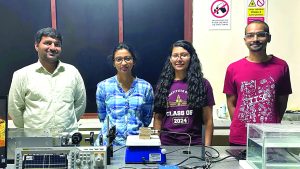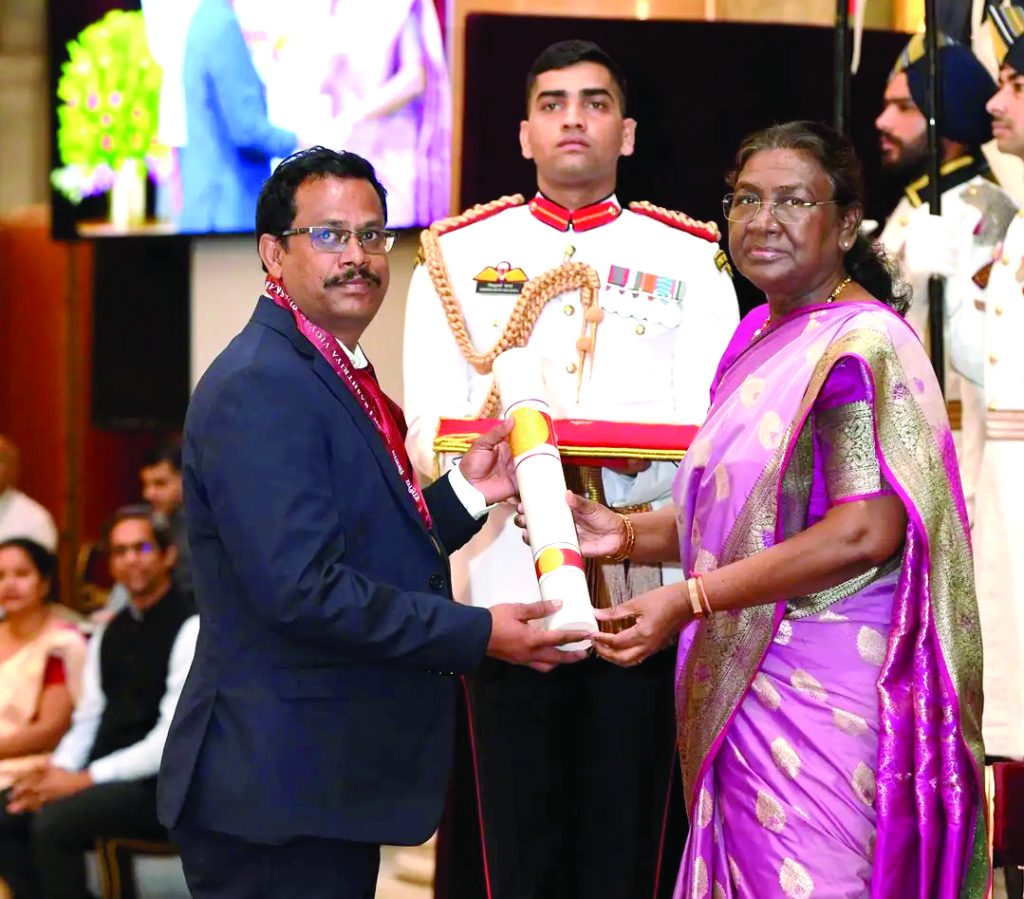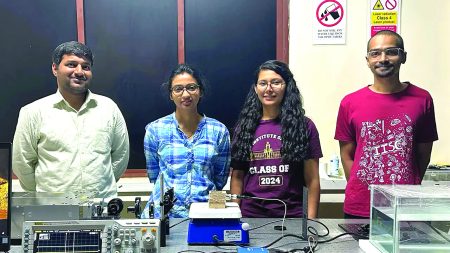Image Courtesy: PIB
YOUNG SCIENTIST/ Dr KRISHNA MURTHY SL
Dr Krishna Murthy S L, a plant breeding scientist at the ICAR-Central Soil Salinity Research Institute (CSSRI), Karnal, has been awarded the Vigyan Yuva Puraskar for Agriculture for his outstanding contributions to the development of stress-tolerant rice varieties. Recognised by the Indian Council of Agricultural Research (ICAR), his research has significantly advanced rice cultivation in challenging agro-ecological zones affected by salinity, alkalinity, and phosphorus deficiency.
Currently working in the Division of Crop Improvement at CSSRI, Dr Murthy’s work focuses on combating abiotic stressors, particularly soil salinity and nutrient deficiency, that severely limit rice productivity across India. His innovations directly benefit farmers cultivating rice on over 2 million hectares of marginal land across states such as Uttar Pradesh, Gujarat, Assam, and West Bengal.
Around 6.73 million hectares of land in India is affected by salinity and alkalinity. In the eastern and northeastern states, phosphorus deficiency in soil is a major issue. Through targeted breeding, Dr Murthy’s team is enabling farmers in these regions to grow rice profitably.
Dr Murthy holds a PhD in Plant Breeding from the University of Agricultural Sciences, Bangalore, and an MSc from Marathwada Agricultural University, Parbhani, in Maharashtra. His academic foundation has propelled his career in molecular breeding, particularly in the development of salt-tolerant rice varieties through modern techniques like Marker-Assisted Backcross Breeding (MABB).
His current research areas include:
- Extensive zotyping and genotyping for salt tolerance genes
- Transfer of salt-tolerance traits to popular varieties
- Development of salt-tolerant transgenic and Basmati rice lines
- Establishment of a National Rice Database
- Coordination of breeding programmes for salt-affected regions
Dr Murthy has phenotyped major mapping populations, including CSR 11 x MI 48 and CSR 27 x MI 48, for over two years to identify salt-tolerance traits. He has screened SSR markers and salt tolerance QTLs to develop rice varieties with superior yield under stress conditions. More than 7,000 rice accessions have been assessed for over 30 traits, forming a significant data pool to support national breeding programmes.
Using MABB, Dr Murthy’s team incorporates salt tolerance into existing high-yielding varieties while minimising unwanted traits. By screening breeding populations in ‘sick plots’—fields with high salinity or low phosphorus— he ensures that only the most robust lines progress to national testing under AICRP-Rice, India’s coordinated varietal evaluation system.
These new lines consistently deliver a yield advantage of at least 10% over traditional varieties under adverse soil conditions. His team has also managed to reduce the development cycle by half, thanks to the use of molecular markers and genomic tools.
Dr Murthy’s research has had real-world impact, especially in regions where soil degradation and climate variability threaten livelihoods. His efforts support India’s broader goals of food security and climate-smart agriculture. He also plays a critical role in training young scientists, promoting data sharing, and ensuring field-level dissemination through Krishi Vigyan Kendras and agricultural universities.
As India faces increasing soil and water-related challenges, his work serves as a beacon of innovation rooted in farmer-centric research.
“Our goal is to ensure that no farmer is left behind because of soil conditions,” Dr Murthy says. “We want every seed we develop to bring prosperity, even in the most difficult fields.” As the country moves toward more resilient and adaptive agricultural practices, scientists like Dr Krishna Murthy are shaping the future—one stress-tolerant rice variety at a time.










